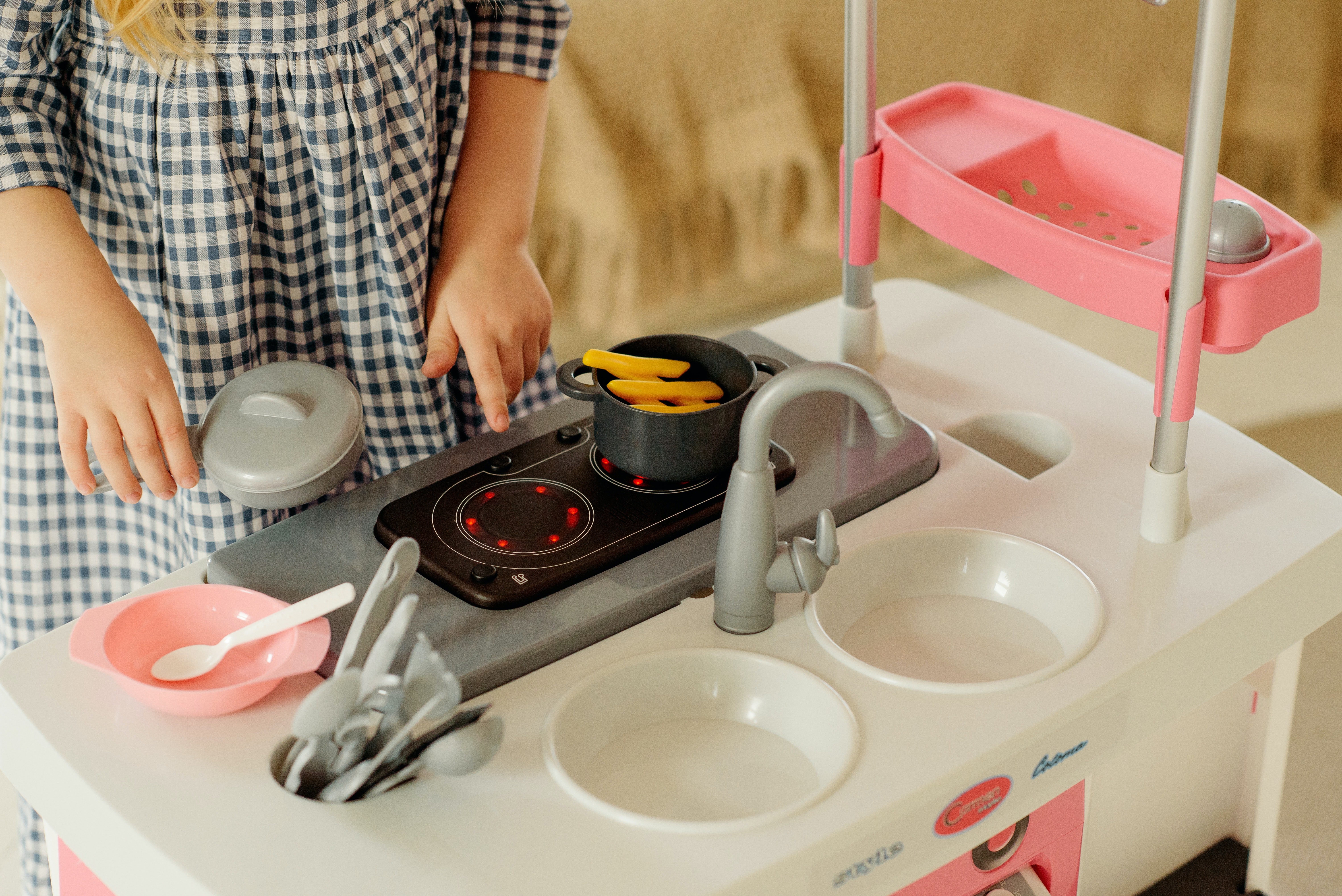How Pretend Play Toys Help Foster A Sense Of Imagination Aiding To Overall Development In Kids?
Jul 6th 2022

The concept of pretend play is not new; with the oldest doll dating back to 2000 BC! To begin, pretend play is a type play in which kids use their imagination, different toys or toy sets to create and enact numerous roles. Studies shows that pretend play for toddlers, starting as early as 14 months, allows the child to learn about themselves, develop complex social skills and workout new life issues while their emotional intelligence grows.
With new dramatic play ideas and the different roles, the child takes on they learn how to solve problems, cooperate and think with flexibility!
Facts About Pretend Play Sets for Kids
With different types of Pretend Play Sets available, we have listed out a few ideas that will make it easy to choose the right one for your kid.
- Starting off for toddlers I would choose a doll, a lovey with some sort of simple face, or stuffed animal. Even a simple doll house set-up. My daughter started to play with her dollhouse around 15 months. I sat down and acted out two of the dolls playing in the house and within minutes Winnie had taken over the dollhouse and was in her imagination!
- While the child experiments with different roles such as; chef, doctor, shop owner, pretend toys (pots and pans, doctor kit, cash register) support the role playing tremendously! This leads to the understanding of the real world and real life issues that the child would like to process.
- Dramatic pretend toys help children play the role of someone they are fond of or have observe carefully in real life. Some examples are Dolls (more complex than the one you would gift a young toddler), play kitchens, play food, puppets, capes… any prop that would support their world!
The Benefit Of Playing With Pretend Toys
Pretend toys have an integral part in a child’s overall development.
- Imaginative play or pretend play during Stage 1 and Stage 2 of learning enhances a child’s ability to think with flexibility leading eventually to problem solving skills
- Pretend play helps a child engage with objects and other kids around them making it is easy for them to comprehend emotions and respect what others have to say. This also fosters a sense of empathy, responsibility, and mutual consent.
- Kids who play with pretend toys are better communicators and listeners. While the child reenacts different situations with other children; the imaginary role playing allows vocabulary and emotional intelligence to flourish!
- Another imperative area supported by pretend play is learning how to problem solve! With kids fully involved in a game they will think about a situation from multiple perspectives and practice conflict resolution. Language and self-regulation skills are also growing like wild flowers at this time!
I hope our children spend the summer lost in the different worlds they create!
